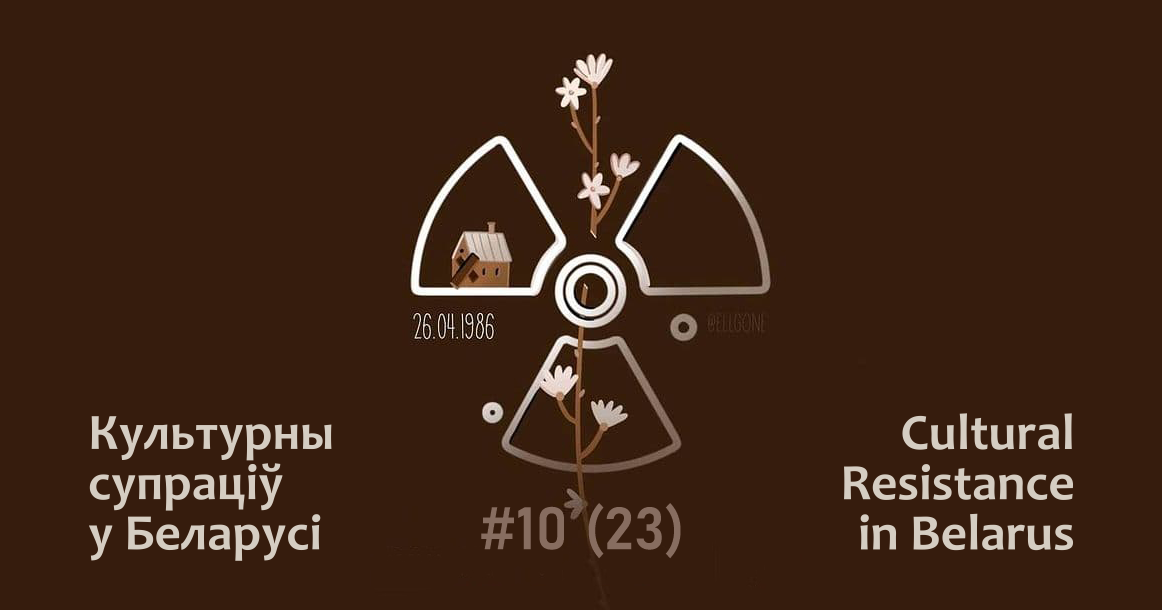
Download the pdf-version of issue 30 of Cultural Resistance Monitoring
Persecution, Convictions, Cultural Policy

Maksim Šaŭlinski [Maxim Shaulinski], musician and activist, was sentenced to 2 years in open prison for slandering a policeman. See the link to listen to his album of experimental electronic music.
Alaksiej Krukoŭski [Aliaksei Krukouski], a musician and ethnographer detained in Minsk on April 26, received 11 days of administrative arrest.
Anastasija Vajtovič [Anastasia Vaitovich] and Jury Łankievič [Yury Lankevich] were detained on April 26 near the Church of the Blessed Virgin Mary in Minsk and sentenced to 15 days of administrative arrest each; they simply wanted to put memorial candles near the church, in memory of the victims of the Chernobyl tragedy.
Maryja Amasovič [Maria Amasovich] was sentenced to 20 days in jail for leaving a candle in memory of the Chernobyl tragedy on the porch of a church in Vicebsk on April 26, and her friend Lizavieta Kiryjenka [Lizaveta Kiryienka] received 10 days for standing nearby. By lighting candles, “the girls expressed their opinion of the events of socio-political life.”
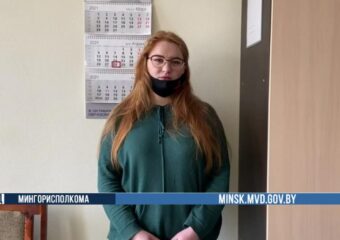
Hanna Važnik [Vazhnik], a music teacher, has been charged for a joke on Twitter. She changed the text of the Belarusian anthem to a more humorous one, and the police perceived it as a mockery of state symbols.
Aleś Bialacki [Ales Bialiatski] and several other human rights activists were summoned for questioning by the Investigative Committee on May 3, as suspects in a criminal case under Part 2 of Article 342 of the Criminal Code – training of persons to participate in group actions that grossly violate public order.
Aleś Puškin, artist, was sent to pre-trial prison number 1 in Minsk from Hrodna on April 28. It is likely that his case will be trialed as part of the Union of Poles case.
The trial over Pavieł Sieviaryniec [Pavel Sevyarynets] is likely to start on May 12 in the Mahiloŭ regional court. Activists of the European Belarus civil campaign Jaŭhien Afanhiel [Yauhen Afnahel], Pavieł Juchnievič [Pavel Yukhnevich], Dźmitry Kazłoŭ [Dzmitry Kazlou], Maksim Viniarski and Andrej Vojnič [Andrei Voinich], as well as public activist Iryna Ščasnaja [Iryna Shchasnaya] will be tried in the same case.

Taćciana Bryč [Tatiana Brych], a 27-year-old teacher of Russian language and literature from Biełaaziorsk, was fired for her civil position.
A Belarusian-language school is to be closed in the village of Amielaniec in Brest region. Pavieł Kiendyś [Pavel Kendys], a geography teacher, thinks that one of the reasons is that the school in Pahraničny [Pogranichny], which was built a few years ago, lacks students and its construction needs to be justified. The chairman of the Kamianietc district executive committee Valancin Zajčuk [Valiantsin Zaichuk] claims that the closure of the school has nothing to do with the Belarusian language of instruction, however, this is another sad example of a policy not aimed at supporting the Belarusian language.
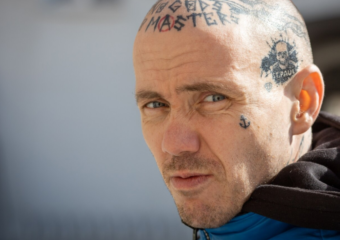
Police keep the persecution of Ihar Bancer [Bantser], a musician and activist who was sentenced to a year and a half in open prison for hooliganism on March 19 and was released pending his appeal. They claim that he has some unpaid fines, although Ihar says he paid everything. After five months in prison, Ihar was diagnosed with hepatitis C, as well as serious stomach problems after a 16-day hunger strike.
In the Vicebsk region, state educational and cultural facilities are being sold at auctions at an accelerated pace and unreasonably low prices, like 10 and 20 Euro for a building. This trend is due to the reduction in the number of students and readers in rural areas and small towns in the region.
The show Neighbors, based on the stories of real people who went through the events in Belarus in August 2020, which was to be performed by the Moscow-based Teatr.doc, was disrupted by the police. Shortly after the beginning, officers entered the room and said they were informed about a bomb planted there.
Symbols
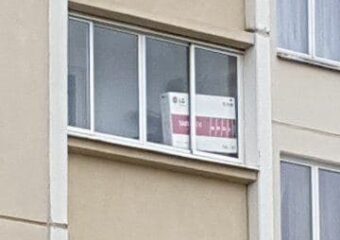
Andrej Parchomienka [Andrei Parkhomenka] was detained at home in Minsk on April 26 for a white-red-white paper box from an LG TV set, considered as picketing.
Dzianis Muzykin [Dzyanis Muzykin] from Minsk was sentenced to 13 days of administrative arrest for “picketing using cloud-shaped stickers on the window, tulips and daisies in white-red-white coloring, and towels …”
Life of People Behind Bars

Ihar Iljaš [Ihar Ilyash], the husband of Kaciaryna Andrejeva [Ekaterina Andreeva] (journalist, co-author of the book Belarusian Donbass) finallly had a meeting with Kaciaryna before she is sent to the colony in Homel. Ihar said that she hasn’t received Novy Chas newspaper since the beginning of April, and only registered letters are handed to her. The colony has its own rules on packages: no more than 4 packages and 2 parcels per year, only from relatives. Not relatives can now send only letters, postcards and telegrams.
Kaciaryna Andrejeva was detained on November 15 (along with the camerawoman Darja Čulcova) while streaming the brutal dispersal of the rally in memory of killed Raman Bandarenka. Both journalists were sentenced to two years in medium-security penal colony for organizing and preparing actions that grossly violate public order.

Darja Łosik [Daria Losik], the wife of Ihar Łosik, political prisoner, blogger and journalist who has been in prison since June 25, 2020, was not allowed to see her husband. Darja also doesn’t receive letters from him. Ihar is kept in prison №8 in Žodzina. He recently finished reviewing the case materials, but no one can tell when the trial starts, as the other defendants are still studying the materials.
Aliaksandr Fiaduta’s family received the first letter from him, dated April 26. He writes,
“Today I was looking at the sky for half an hour on a walk. Very blue, white clouds, beautiful.” As it is known from Marina, Mr. Fiaduta’s wife, the medical staff treat him well.”
April 29 marks a month since Aleś Puškin [Ales Pushkin] has been behind bars. Belsat published his notes from the Hrodna prison. We don’t have the English language version of them but see the link for the Belarusian one. He also writes that he receives only letters and postcards about art.
Taciana, who spent 30 days of administrative arrest, political article, made sketches and told about life in remand prisons in Akreścina [Akrestsina] (Minsk) and Žodzina [Zhodzina].
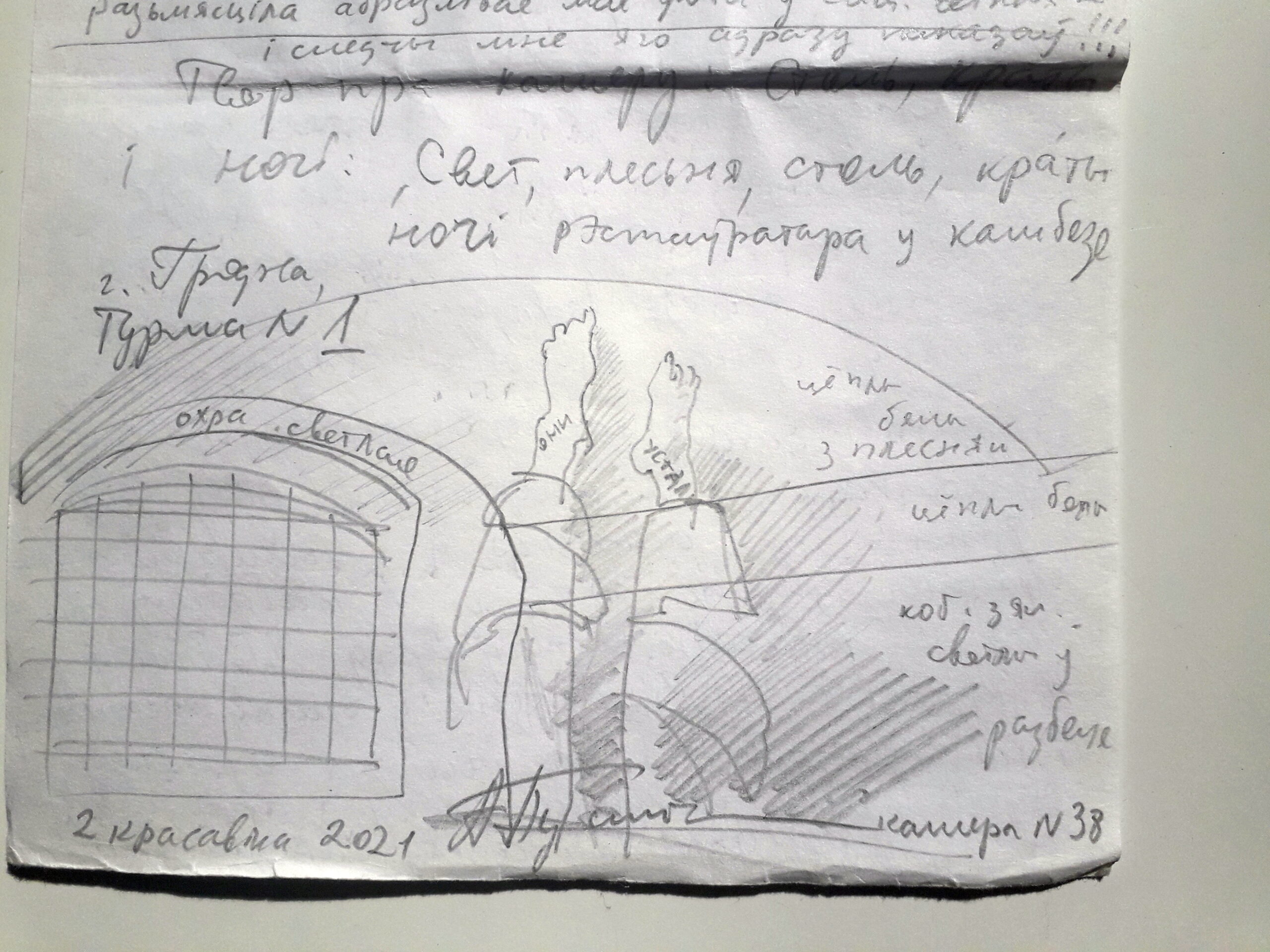

Dissent and Cultural Activism
April 26 is the day of remembrance of the Chernobyl tragedy. This year, on the 35th anniversary of the tragedy, the regime not only didn’t raise the issue openly and didn’t cover it truthfully, but tried to silence even those who wanted to leave memorial candles under the churches. About 20 people were detained. However, society and creatives didn’t keep silent, and many have created works on this topic.
Radio Liberty/Radio Free Europe prepared a multimedia project, which tells the chronology of the events before and after the disaster, about the four crimes of the Soviet authorities in the first weeks after the accident, its consequences for Belarus, as well as publishes “Voices of Chernobyl” (video and audio interviews with the heroes of the book byAlexievich), a unique photo album and a list of literature about the accident.
The band J:Морс dedicated a new song 1986 to the Chernobyl catastrophe, it has a clear connection with today’s Belarus.
Green Belarus organized an online reading of chapters from the book by Svetlana Alexievich Chernobyl Prayer.
Vladimir Tsesler, “April 26, 1986. Watermarks”
Aleksey Kulinkovich, “April 26, 1986”


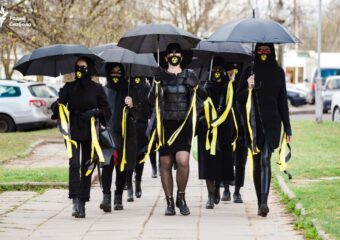
A women’s action took place in Minsk Malinauka district. This area is linked with Chernobyl: after the accident, people who had to resettle from the contaminated areas were given apartments there.
On April 29 as part of the exhibition “Every day. Art. Solidarity. Resistance” there was an online discussion on the topic: “Art in Exile: Promoting Change Across Borders”, with the participation of Volha Šparaha [Olga Shparaga], Lesia Pčołka [Lesya Pcholka], Alaksiej Barysionak [Alexei Borisenok] and other Belarusian artists.
Residents of Senica, a small town near Minsk, prepared a strong photo project – they call to support political prisoners.
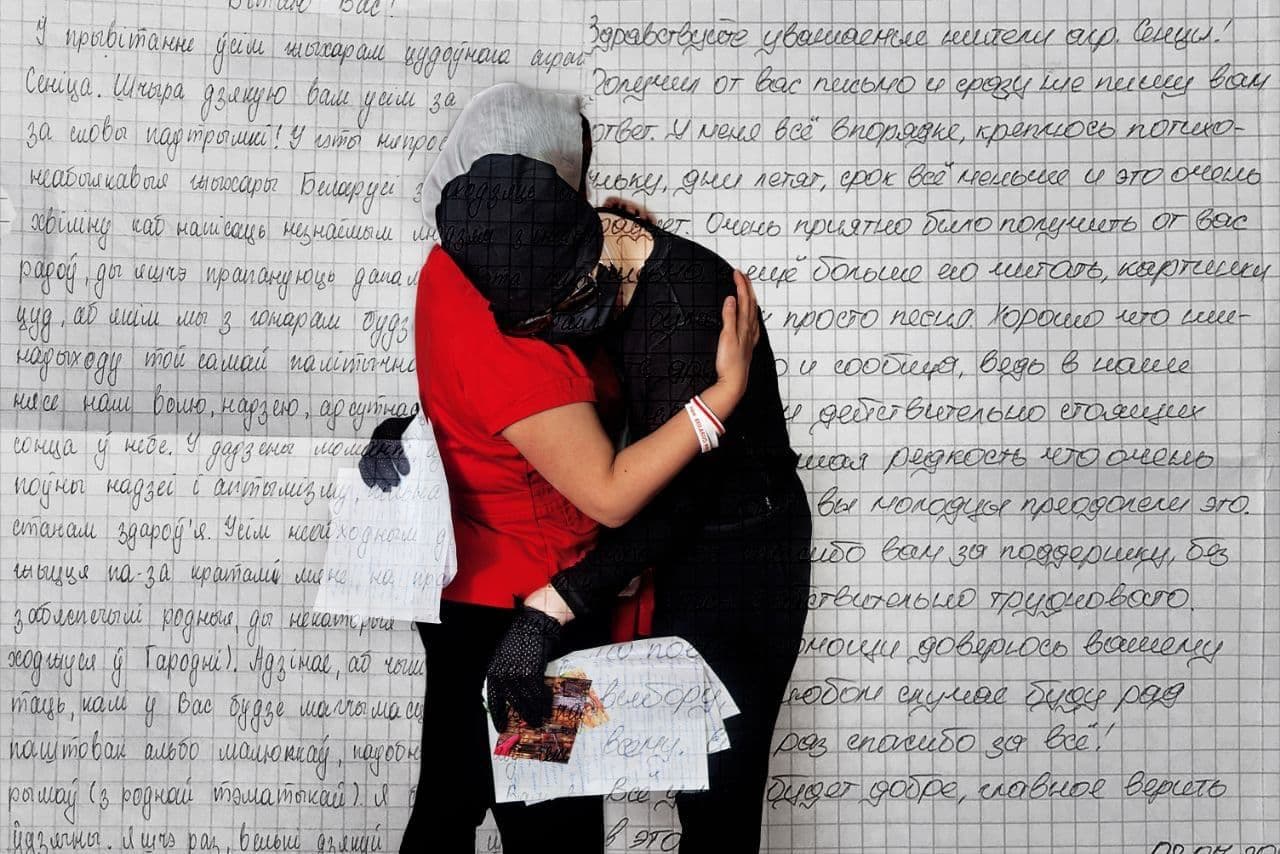
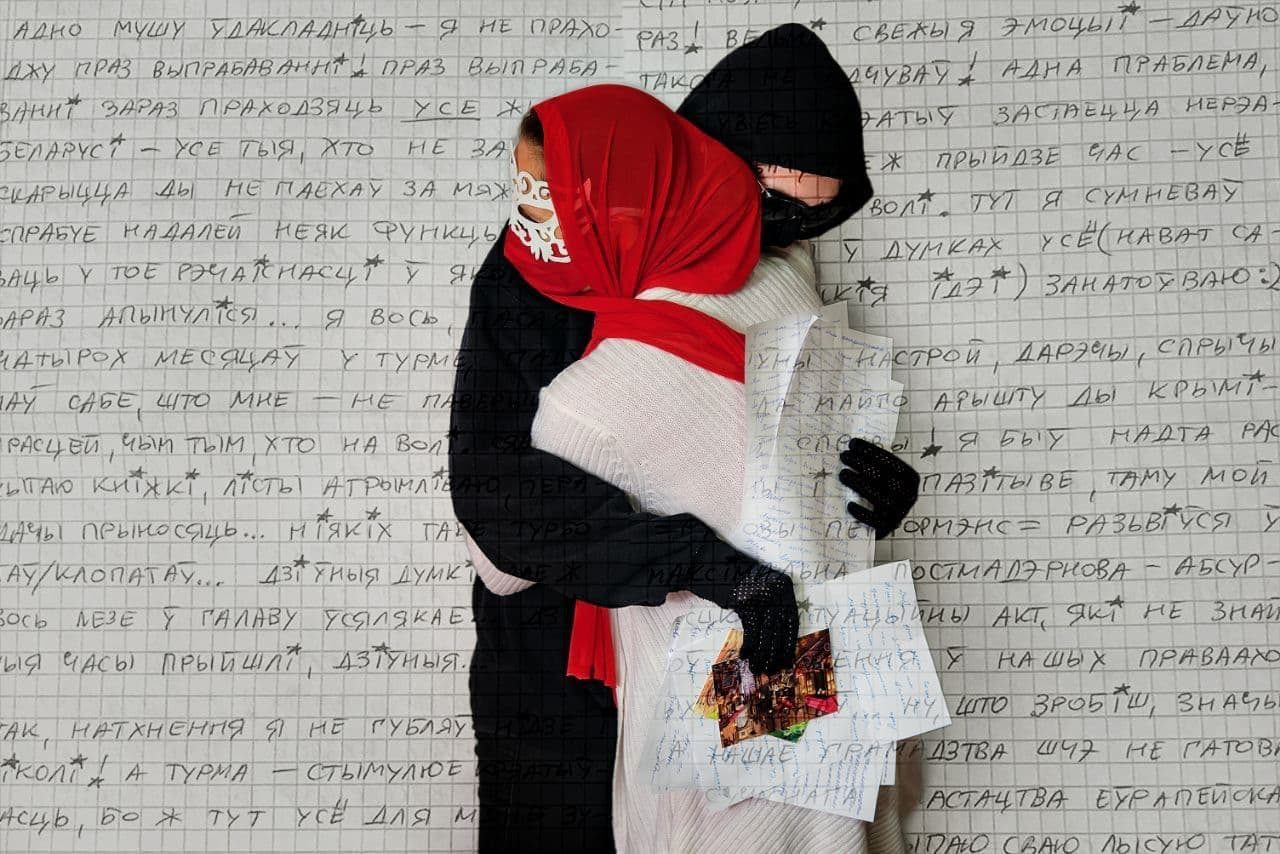
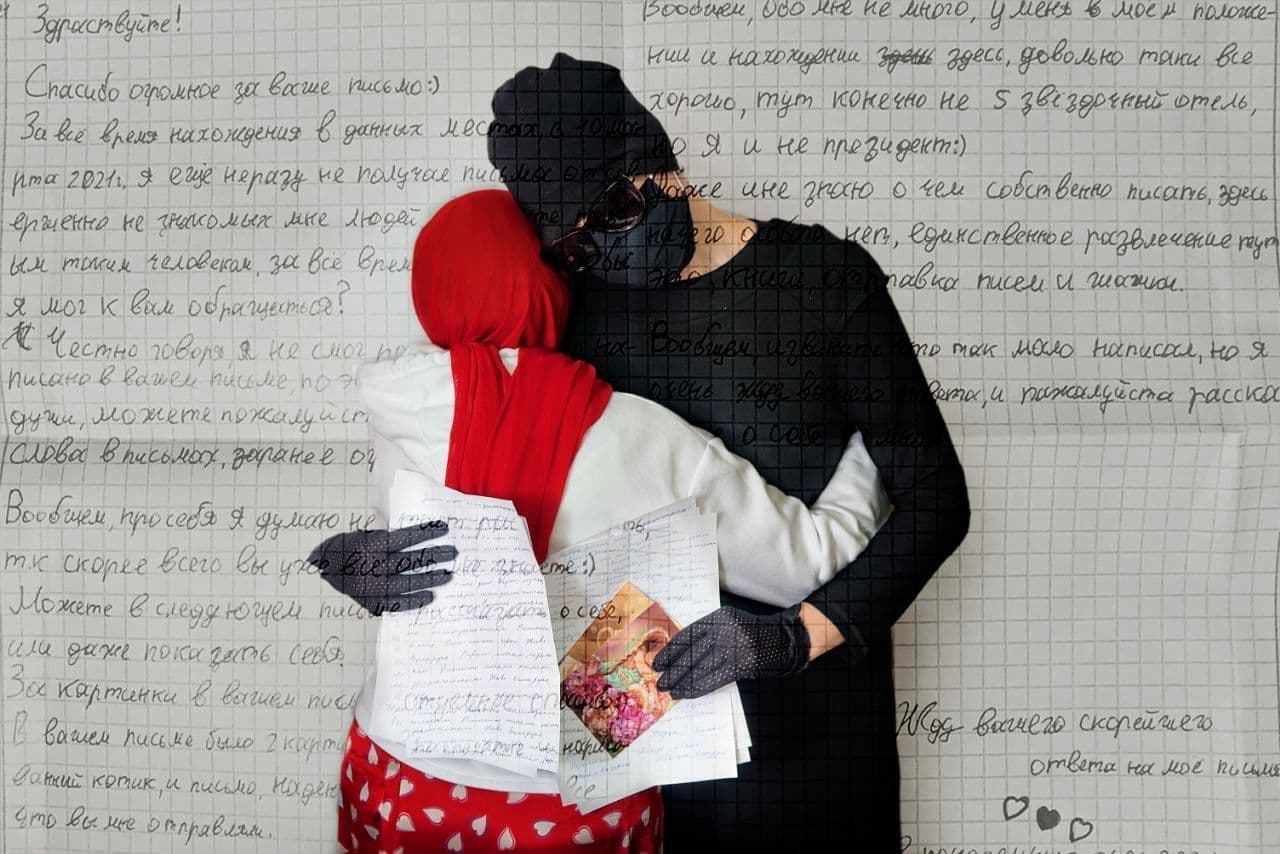
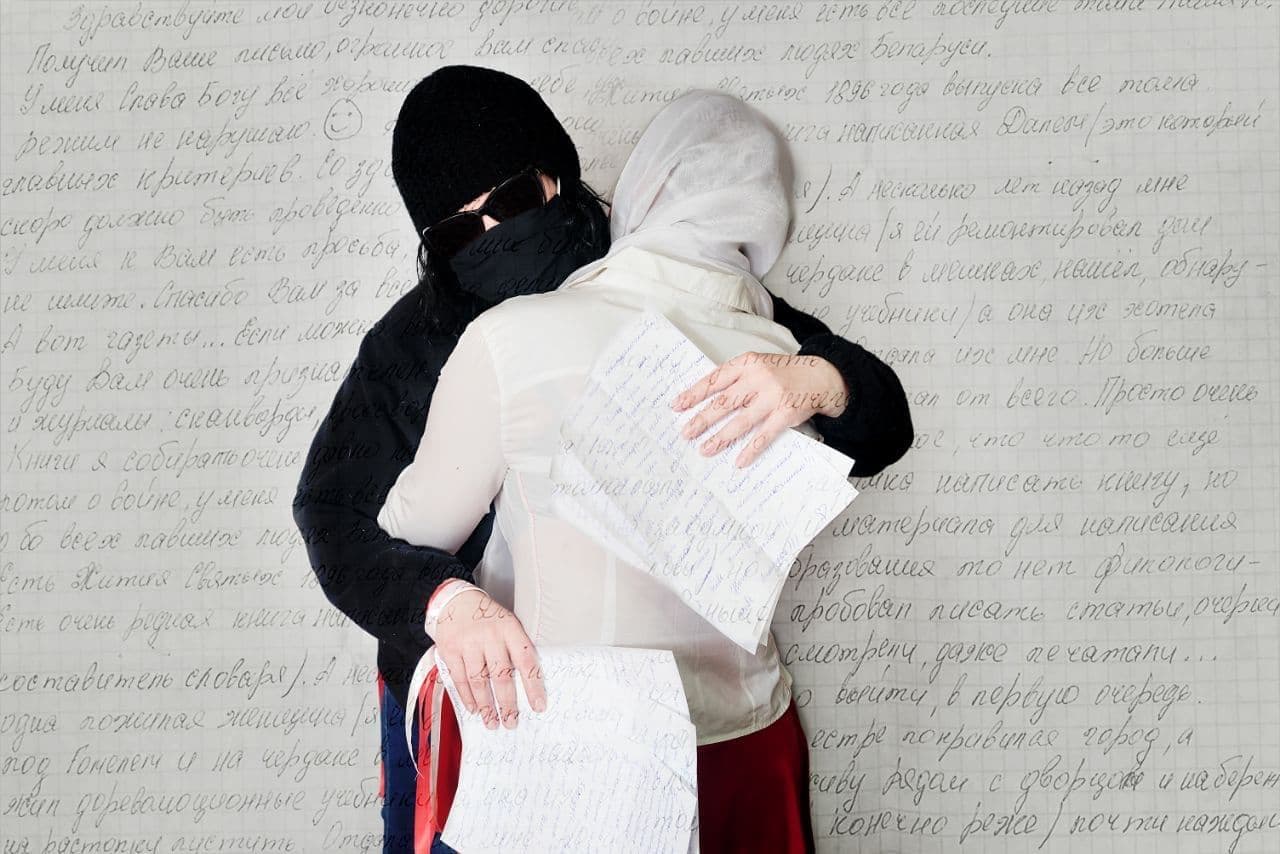
Online Festival Victory Artists: Zmicier Vajciuškievič, the prominent lyric talent, performed on May 1 in support of Belarusian creative community.
Belarusians of Lithuania – with the support of Belarusian Culture Solidarity foundation – organized a family event during which children drew Easter cards for political prisoners in Belarus.
Voices of Belarusian Culture
Taćciana Hacura-Javorskaja [Tatiana Gatsura-Yavorskaya], human rights defender, organizer of many cultural initiatives, including documentary film festivals and the exhibition “The machine is breathing, but I’m not”, posted on her Facebook page:
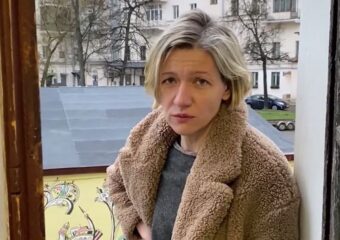
“It may seem that there’s no more space left for expressing our protest, but this isn’t true. Yes, rallies are prohibited, for white sheets of paper and stickers you get administrative arrest, for white-red-white pants you get dismissal. The absurdity gains momentum, and people suffer.
First, you need to remember that this is a REACTION. That is, despite the repressions that take place, they happen because people resist. We act, so they have to act in return. We are ahead, they are behind us.
Secondly, we know what they can do, what to expect from them and to prepare for something, but it’s much more difficult for them – we are everywhere, who knows where the next flag or a dissenting person appears, it’s impossible to get into everyone’s head. This is our strength.”
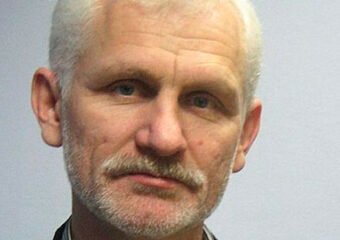
Aleś Bialacki [Ales Bialiatski], head of the Human Rights Centre Viasna, member of the Belarusian PEN Center, appeals to the democratic countries on the occasion of the OSCE Defender of Democracy award and the 25th anniversary of the human rights center:
“Belarus is currently experiencing a civilizational humanitarian catastrophe. In front of the democratic West, civil society is being systematically destroyed. Belarus can soon become an analogue of North Korea in Europe and will be a source of constant instability and a threat to peace in the region.”.
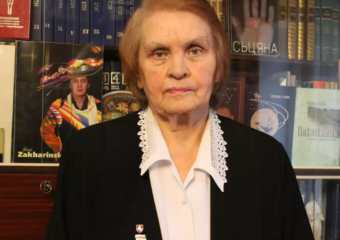
Lidzija Savik, researcher of Stalinist repressions:
“It feels as if we were back in 1937, but in a tougher version. When we, researchers of literature, were allowed to see the KGB archives, when we looked through those horrible folders on which it was written “Top Secret” and “Keep Forever”, we were like how could this happen at all?! At each interrogation, they asked investigators one question: “For what?” Don’t we hear it today?”
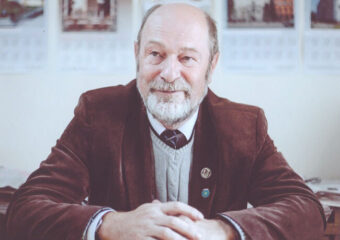
Aleh Trusaŭ [Trusau], Honorary president of the Belarusian Language Society:
“If we keep two state languages, we will have one state language in the next 25 years, and, of course, it won’t be Belarusian. If we are not taken over by Russia during this time, then we are likely to face the fate of not even the Republic of Ireland, but, perhaps, that of Belfast (Northern Ireland), which belongs to Britain, where the language of the Irish is in complete decline.”

Jaŭhienija Pasternak [Evgeniya Pzsternak], Belarusian writer:
“These flags [red and green] are hanging everywhere like a punishment. If you hang the national flag as a punishment, you admit that your other methods don’t work. This is absolutely what occupants do: here you are, partisans, here we hang the flag over your village – and you will suffer, but live under this flag. I laugh when I see these flags over the houses, I think to myself, really good people must be living in this house if the authorities even put a flag for them.”
International Solidarity
Representatives of the independent and state theater scene of Belarus, who have suffered equally from political repression, appeal to foreign cultural organizations, professional associations and foundations to pay attention to the situation and help in a way they find comfortable. This could be a residence for actors, internships, training, workshops, joint search for safe formats of theaters and more.
The Foreign Affairs Committee of the Czech Parliament released a statement condemning the persecution of Poles in Belarus and the detention of leaders of the Belarusian Union of Poles.
An exhibition of arches was held in Riga, one of them dedicated to Belarusian women who went out at night to tie ribbons to support the desire of Belarusians for freedom.
In May, the Ukrainian publishing house Видавництво 21 releases a book of interviews of Ukrainian poet, translator and journalist Iya Kiva with Belarusian writers – “We will wake up different: conversations with modern Belarusian writers about the past, present and future of Belarus.”

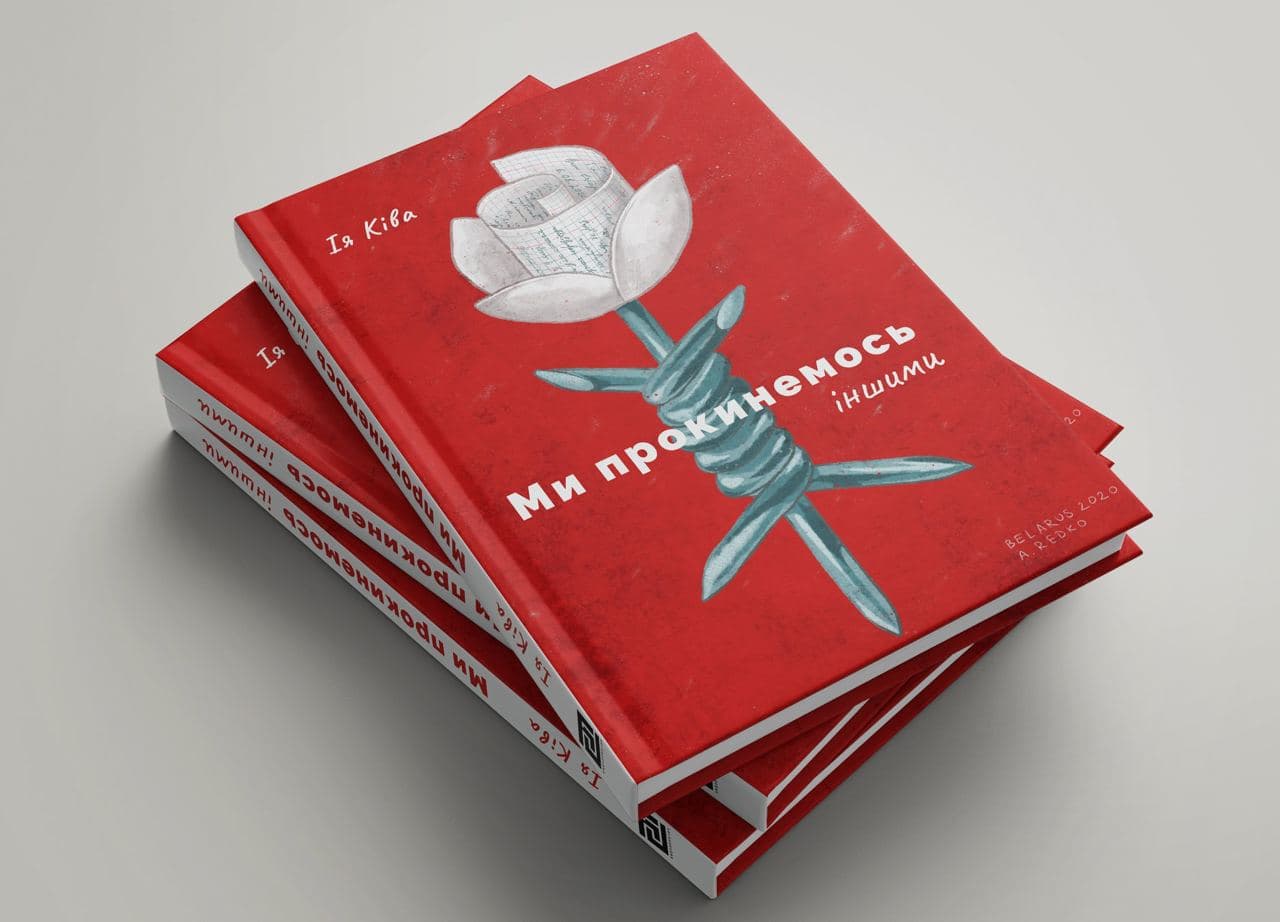
Political Prisoners’ Birthdays
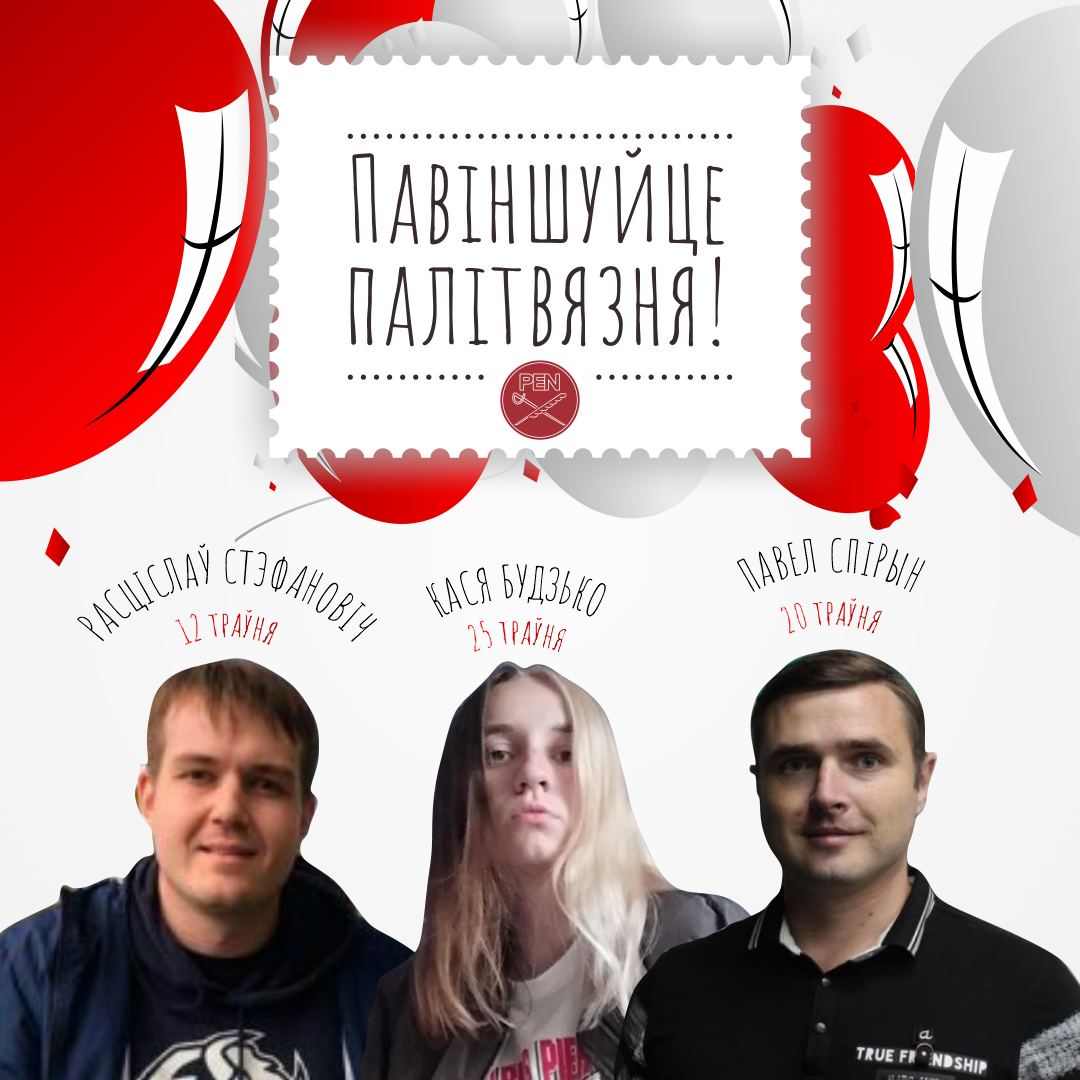
In May, three people who are somehow involved in the process of cultural development in our country will celebrate their birthdays behind bars. They are designer and architect Raścisłaŭ Stefanovič [Rastislau Stefanovich] (May 12), blogger Pavieł Spiryn [Paviel Spiryn] (May 20), student and artist Kasia Budźko [Kasia Budzko] (May 25).
Address for letters: СІЗА-1. 220030, г. Мінск, вул. Валадарскага, 2
Stand with Belarusian Arts and Culture community. Donate to Save Our Songs campaign.
